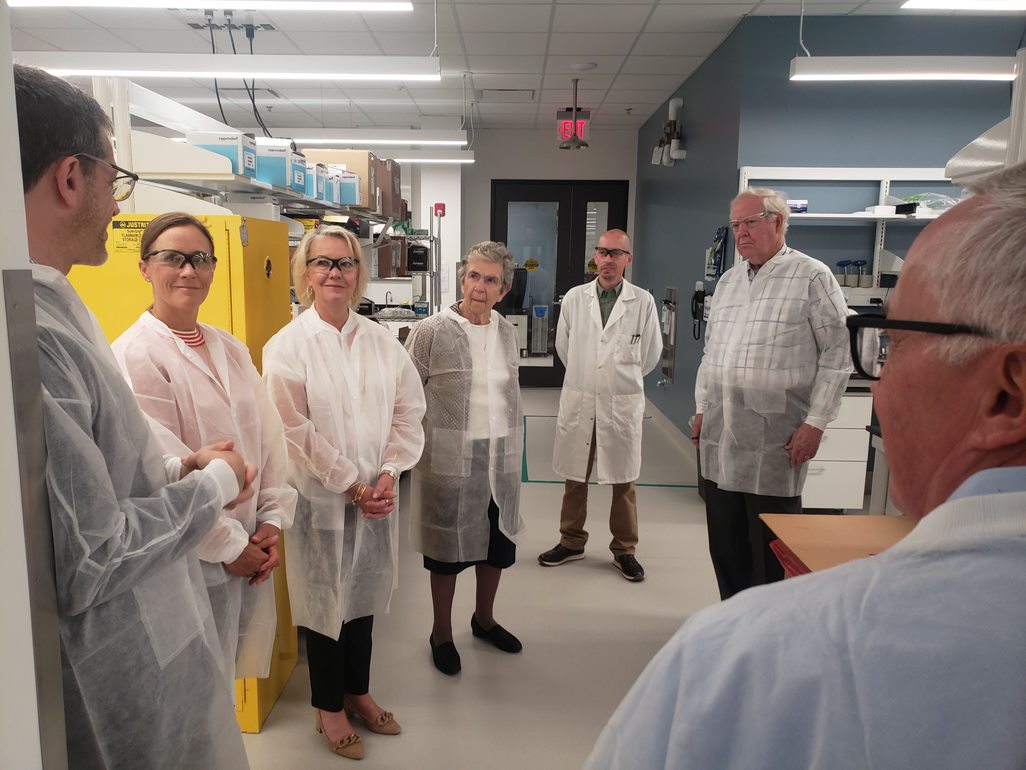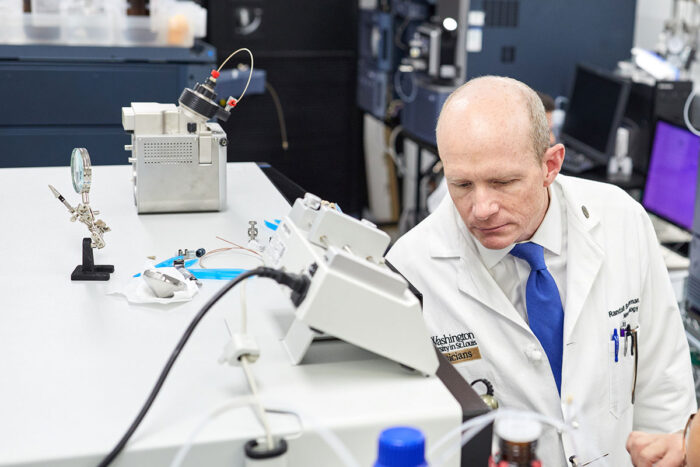"A simple blood test to diagnose Alzheimer’s disease soon may replace more invasive and expensive screening methods such as spinal taps and brain scans.
A study by researchers at Washington University School of Medicine in St. Louis and Lund University in Sweden shows that a blood test can be as good at detecting molecular signs of Alzheimer’s disease in the brain as cerebrospinal fluid tests approved by the Food and Drug Administration (FDA) for Alzheimer’s diagnosis. The blood test, which was created by Washington University researchers, uses a highly sensitive technique to measure levels of Alzheimer’s proteins in the blood.
The research is available Feb. 21 in Nature Medicine.
The findings demonstrate that a blood test can diagnose Alzheimer’s disease pathology as accurately as cerebrospinal fluid tests and brain scans, even in patients with mild symptoms, and can be used to detect molecular signs of Alzheimer’s disease in the brain when symptoms haven’t yet emerged.
Identifying people with the disease has become vitally important, as the first Alzheimer’s treatments capable of slowing the disease’s progression recently became available to patients, and other promising drugs are in the pipeline. Such drugs might be more effective when started sooner rather than later, making it critically important to identify people with the disease early.
“The accuracy of this blood test now enables us to diagnose the presence of Alzheimer’s disease pathology with a single blood sample,” said co-senior author Randall J. Bateman, MD, the Charles F. and Joanne Knight Distinguished Professor of Neurology at Washington University. “This advance will increase accurate diagnoses for many patients.”"
Read more.






 RSS Feed
RSS Feed
